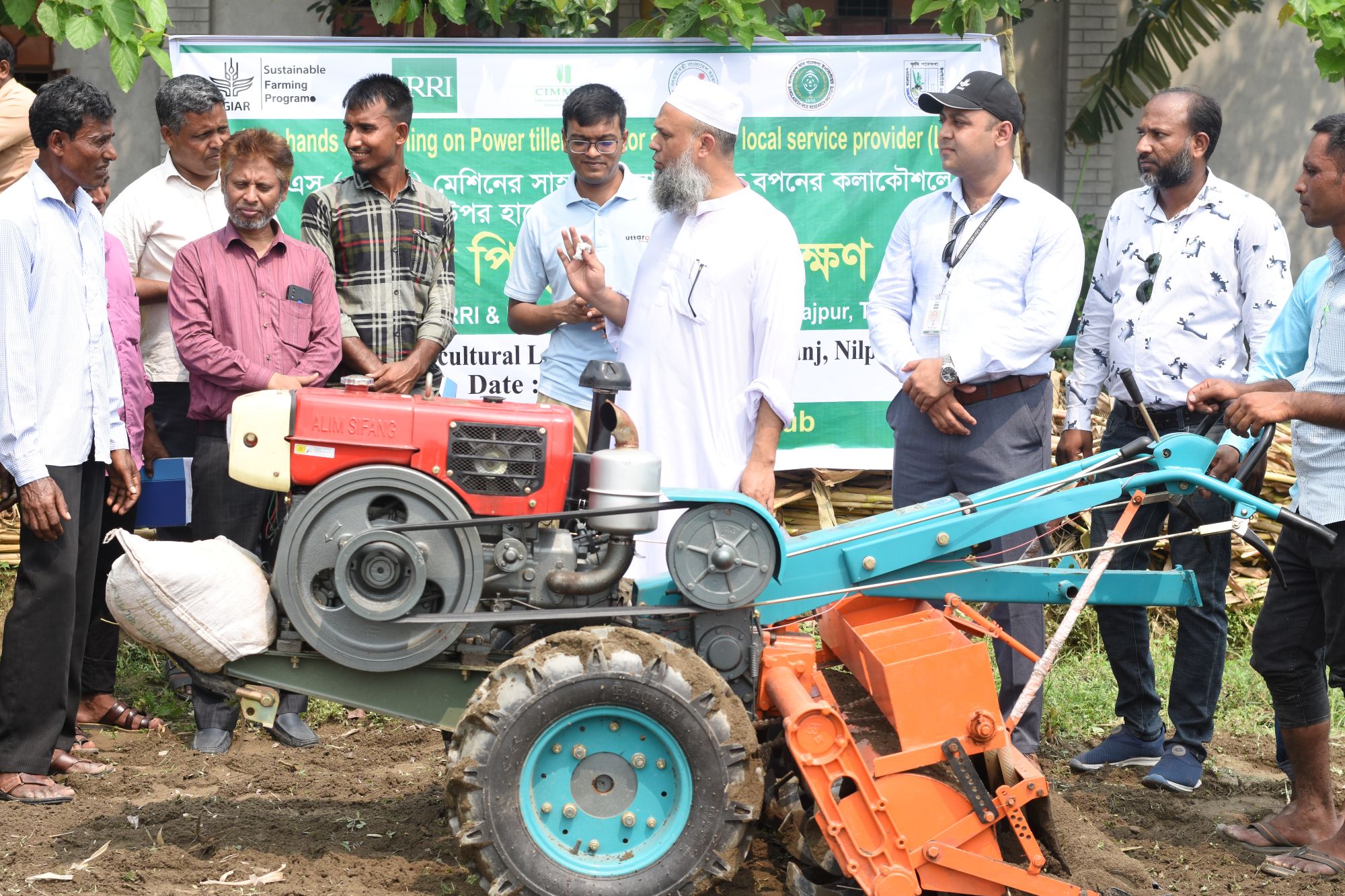Training on mechanized direct-seeded rice (DSR) for precision sowing empowers local service providers in Nilphamari, Bangladesh
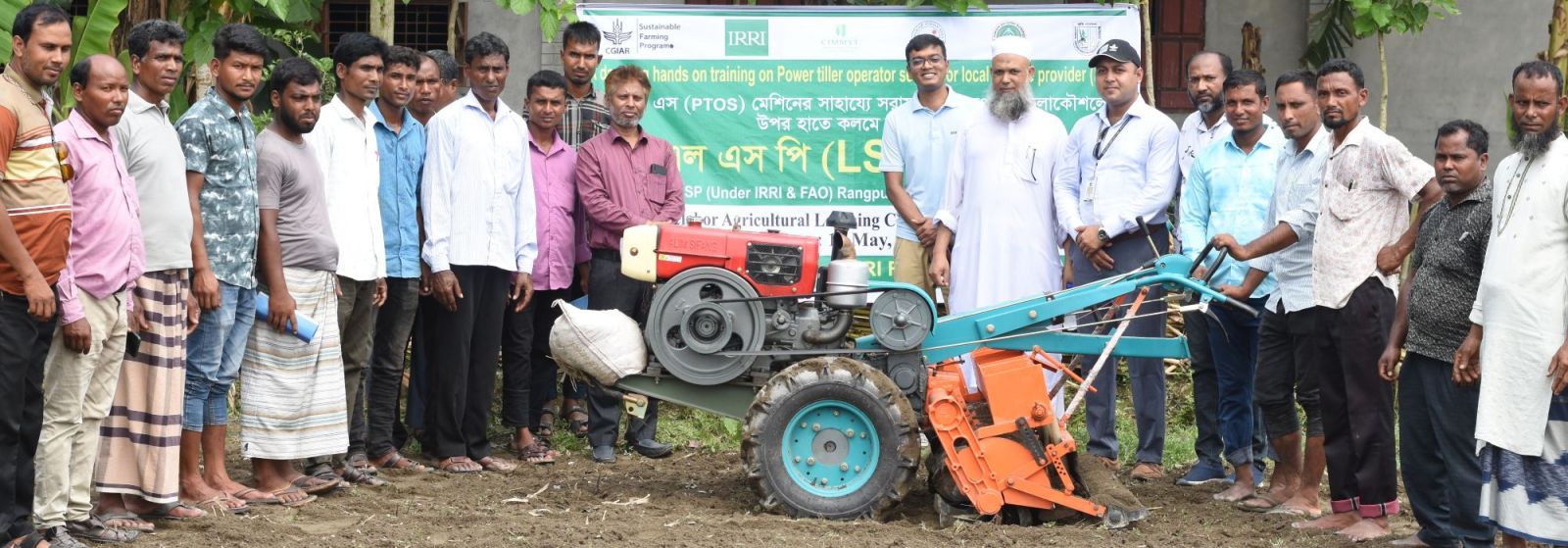
by Sharif Ahmed, Abdullah Miajy, Abdul Haque, and Humnath Bhandari
In northern Bangladesh, the widespread adoption of mechanized Direct-Seeded Rice (DSR) remains slow due to limited access to suitable seeding machines and lack of skilled operators. These constraints prevent farmers from fully benefiting from climate-smart technologies, especially as they face the increasing challenges from labor shortages, rising input costs, and unpredictable rainfall patterns driven by climate change.
In response, the CGIAR Sustainable Farming Science Program (SFP), in collaboration with the Farm Machinery Division of the Bangladesh Agricultural Research Institute (BARI), organized a hands-on training on precision sowing through mechanized Direct-Seeded Rice (DSR). The training aims to equip the rural youth and service providers with the necessary skills to implement this technology using two-wheel power tiller-operated seeder (PTOS) machines to adopt a DSR system.
Led by Senior Scientist Dr. Muhammad Arshadul Hoque from the Farm Machinery Division of BARI and coordinated by Agri-Food Systems Specialist Abu Abdullah Miajy from the International Rice Research Institute (IRRI)-Bangladesh, the training involved 15 local service providers (LSPs), including five from the Food and Agriculture Organization (FAO) mechanization project in Kishoreganj, Nilphamari, Rangpur, Bangladesh. They learned about precision seeding techniques and how to operate seeding devices.
"From today's training, I learned how to properly operate and maintain the PTOS machine for direct sowing of crops like rice, maize, mustard, wheat, sunflower, lentil, and jute. This enhanced my skills and now I feel confident as a PTOS operator,” said Md. Abdul Hie, an LSP from Nilphamari, Bangladesh.
He also added that he aims to use the machine in the upcoming Aman season (June to November) to directly sow rice seeds in 65–70 acres of land, which will help him and farmers in his area earn a better income.
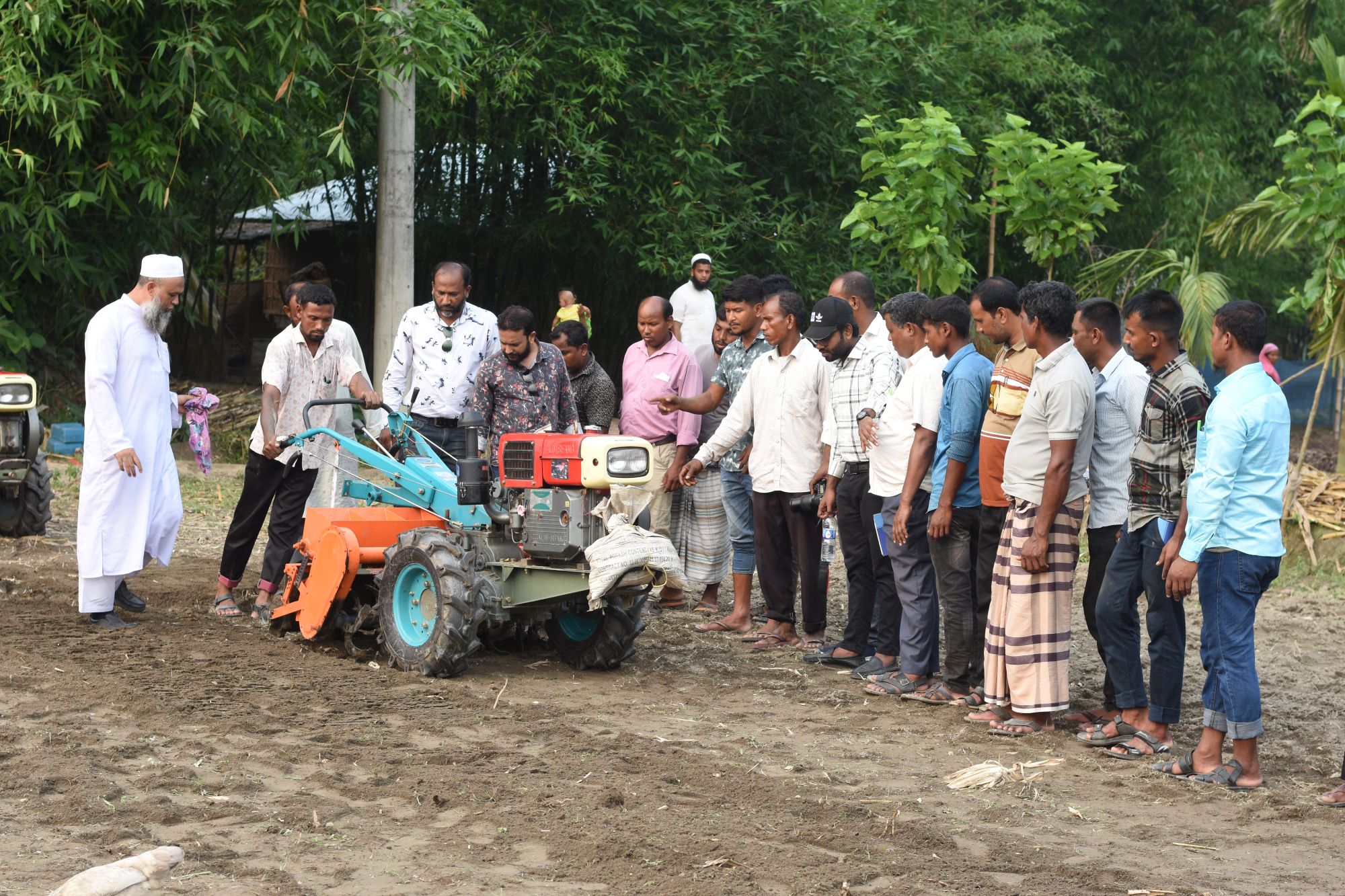
SFP targets to scale mechanized DSR in the Nilphamari districts on 200 acres of land in the next Aman season. Last Aman season, the project has already implemented mechanized DSR on 30 acres, yielding excellent results and further inspiring farmers. It has also deployed four PTOS machines in the area to support DSR scaling efforts. The project is dedicated to enhancing the skills of LSPs and promoting sustainable farming practices.
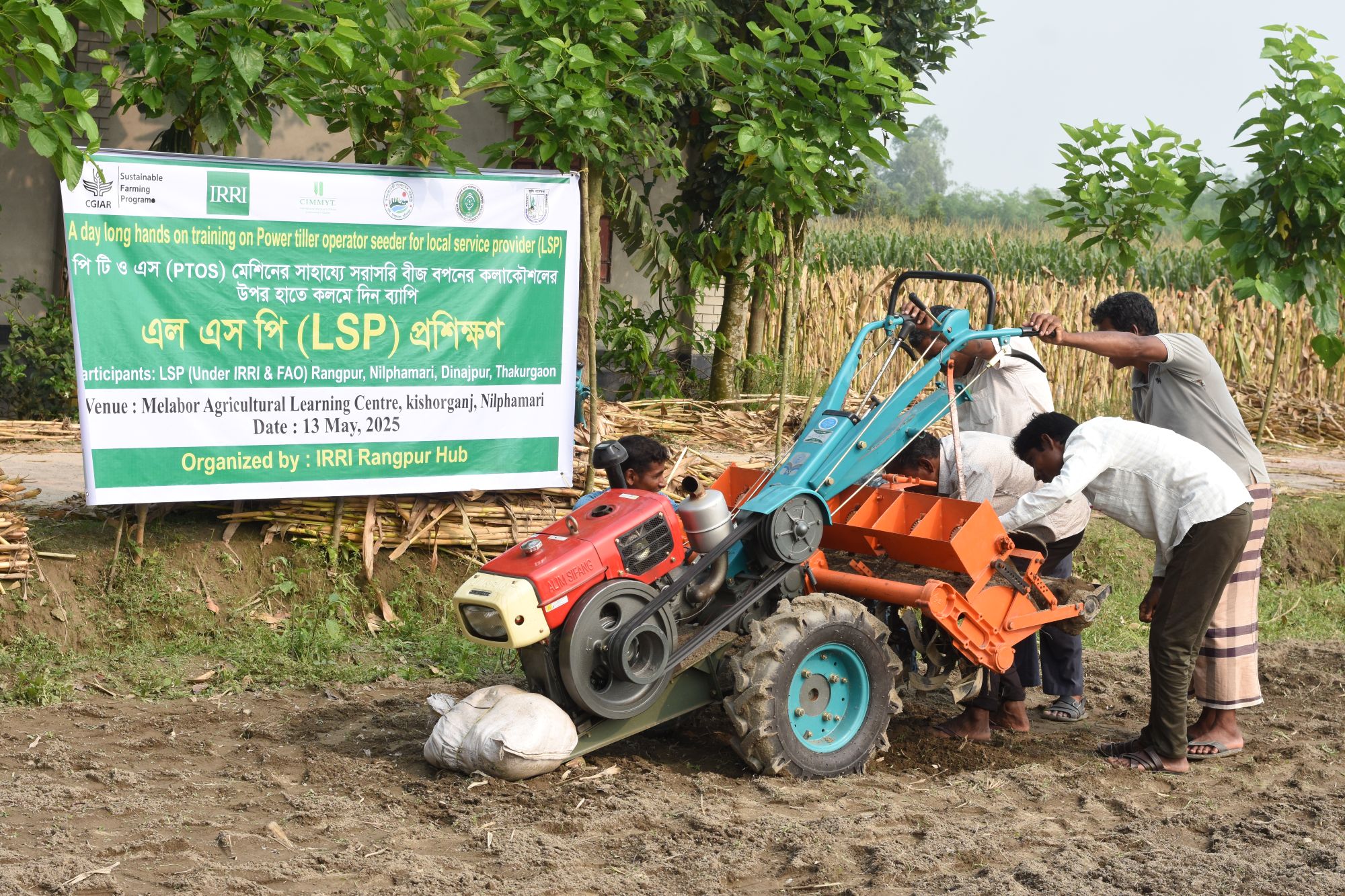 |
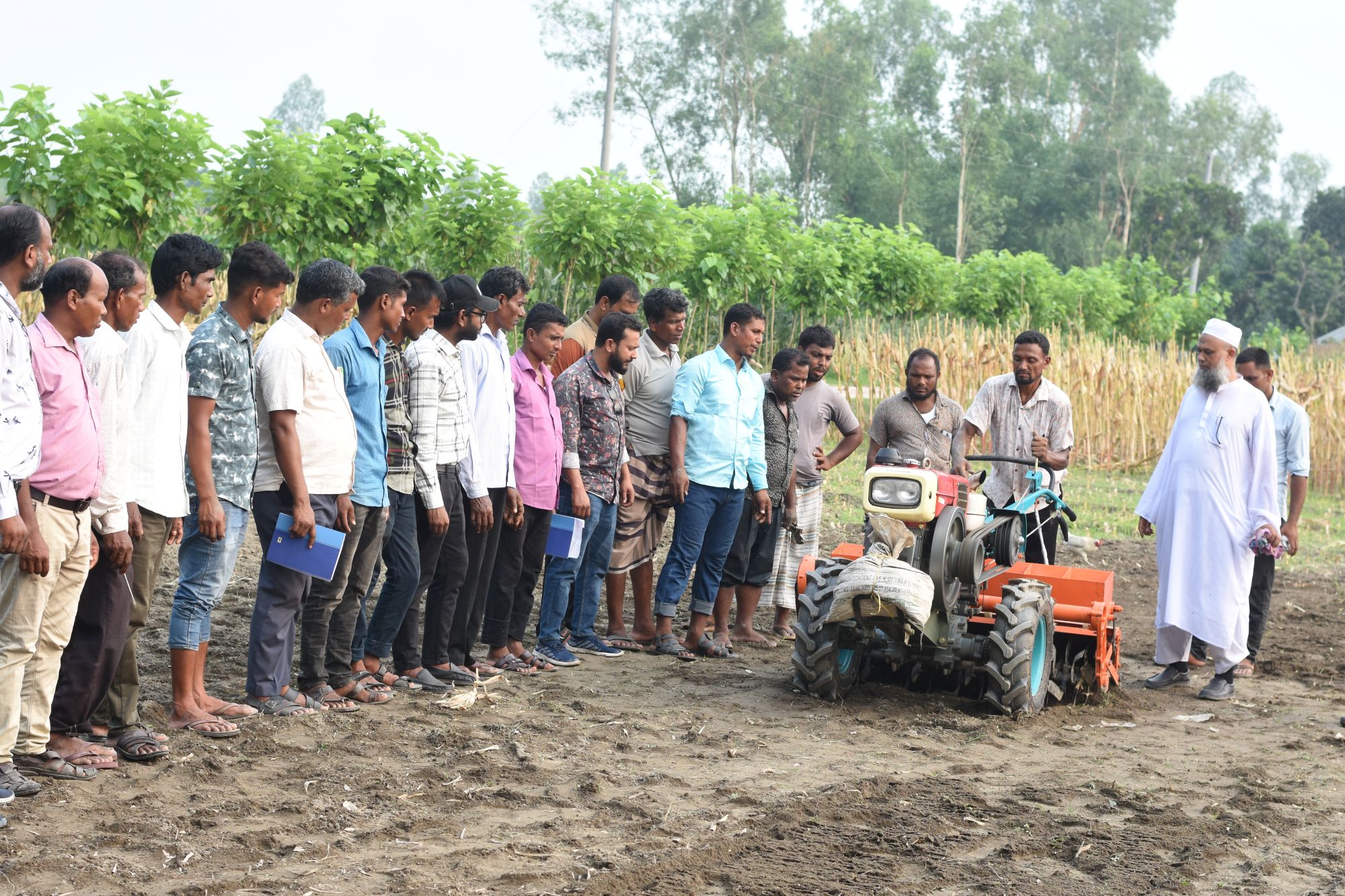 |
Why Mechanized DSR?
DSR, a method where seeds are directly sown into the field, is a transformative technology that reduces labor, water, energy, and greenhouse gas (GHG) emissions compared to traditional transplanted rice. With challenges in water scarcity and labor shortages brought by climate change, mechanized DSR offers a viable solution for farmers in northern Bangladesh, where unpredictable rainfalls and rising costs threaten rice production.
About the CGIAR Sustainable Farming Science Program (SFP)
SFP aims to sustainably increase farm production, productivity, and profitability of nutritious food in the changing climate. It is implemented in priority regions, including Africa, South and Southeast Asia, Central Asia, and Latin America.
The program focuses on counteracting the effects of climate change and other shocks, reducing the environmental footprint of agriculture, and generating impact for five million farmers by introducing innovative solutions across two million hectares of land and aiming to reduce farm-related GHG emissions.
In Bangladesh, SFP is being implemented in the northern and southern regions, working on the following innovations:
- intensified and diversified cropping systems for better crop-livestock integration;
- homestead farming for improved nutrition;
- sustainable crop-livestock integration;
- improved fodder cultivation, compost, and vermicompost production for increasing the use of organic fertilizer;
- climate-smart and resilient production technologies; and
- and empowering women and youth through agro-machineries.
